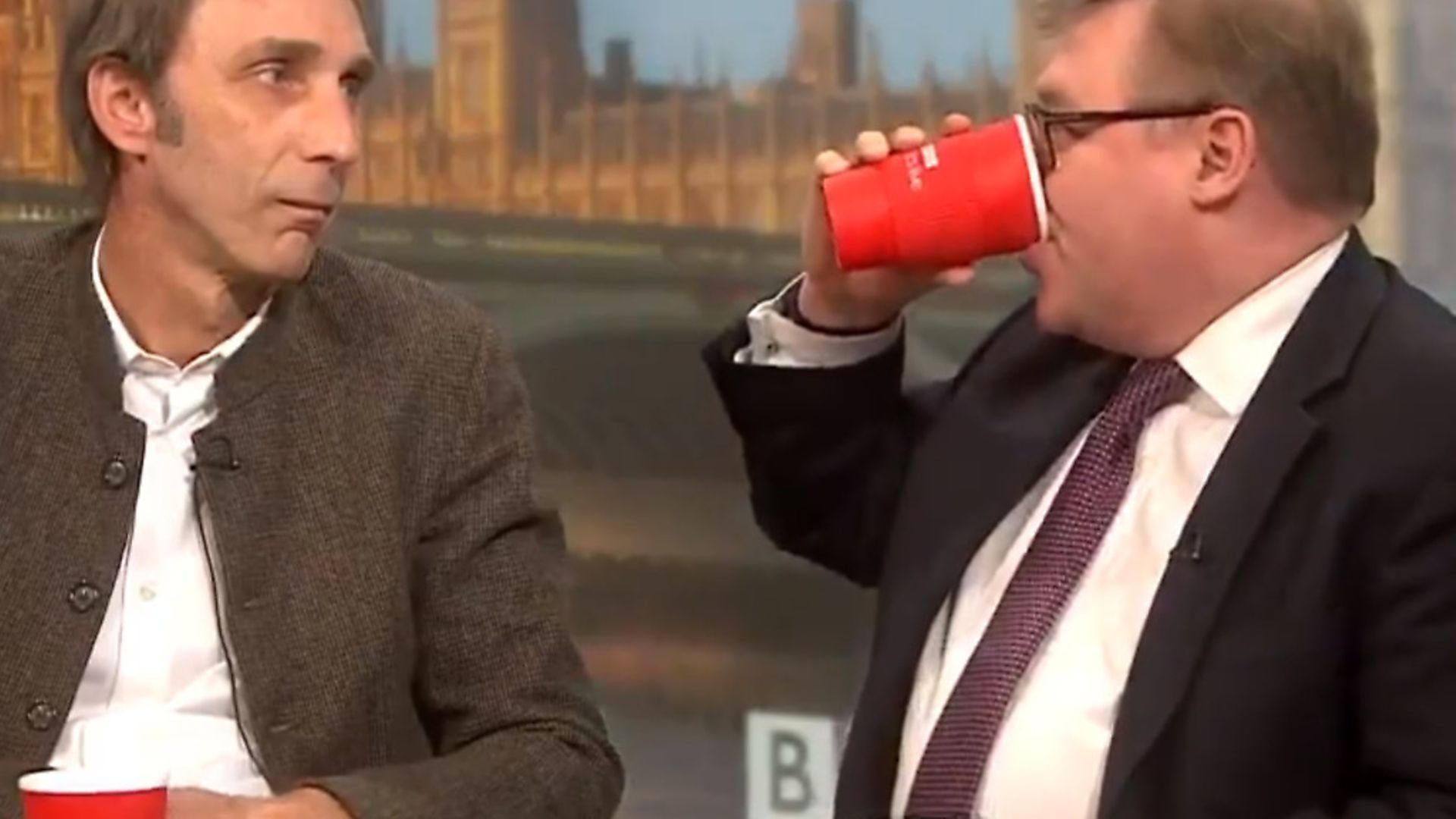
WILL SELF recalls his days of drug addiction as he ponders the meaning of British culture.
As I’ve already had cause to remark in this place: what is a culture? Save for a vector that carries a certain set of values and their associated practices through time, and possibly space. Looked at this way, ‘British’ culture is in a pretty parlous state, beset by the countervailing pressures of globalisation and nativism. Can we get back to the future, via lashings of bitter beer and upskirting cycling spinsters in the John Major mode? Or will our culture be carved up by the competing pressures of multicultural balkanisation, and globalising commoditisation then sold off by the metric tonne?
For my own part, as you’ve probably realised by now, ‘Britishness’ holds little appeal. The first thing that comes to mind when I think of Britain – culturally, that is – is of a little skit my parents used to perform, as we caromed along the leafy B-roads in our s**t-brown Austin 1800 car, on some miserable rain-dank ‘holiday’ or other. As tea time approached, they’d alternate in the roles of hopeful tourist and resolutely unhelpful café or hotel employee, whoever was the former saying: “Would it be possible for us to get some afternoon tea?” While the latter countered: “Ooh, no, sorry sir/madam, tea’s off…”
Of course, this was no fantastic invention, only a faithful repetition of a phrase we’d heard many times, the length and breadth of the land, as we stood in some cabbage-smelling lobby – for this was an era before the invention of the so-called ‘hospitality industry’. I think it was the ‘off’ – a sort of utter negation, suggesting not only that tea was temporarily unavailable, but that tea in all its manifestations from leaf-on-the-bush, to brownish spouting gush, had somehow been evacuated from the universe – that sent my American mother a little bit crazy. A culturally sensitive person, certain English locutions bedevilled her until her death: for example, butchers’ signs indicating they were ‘high class’ or ‘family’, suggested to her either violent revolution, or internecine killing, rather than half a pound of pork chops wrapped in greaseproof paper.
My father, born in Blackheath, raised in the lea of the South Downs, had a more Major-like view of his native land – and towards the end of his life he’d talk wistfully of returning to Sussex, where he’d spend the rest of his days sozzled on Harvey’s bitter and reading Thomas Hardy. But then he’d immigrated to Australia 20 years earlier, even taking citizenship – and such acts of auto-deracination are apt to bring out the nostalgia in even the least sentimental people.
The culture I’ve most felt to be my own is, of course, neither British nor American, but the drug one. I first began using smack during the late 1970s; while it’s true that there’d been a modest heroin scene in central London in the 1960s and ’70s, it was nothing compared to what happened in the 1980s, when the fall of the Shah in Iran led to the opening up of new supply lines running from the so-called ‘Golden Crescent’ straight into the scuzzier and more deprived areas of Britain. The strange thing about the smack scene that developed in London and other major cities at this time, is quite how immemorial it seemed: the emergent junky argot of “chasing the dragon”, “doing chemists”, “kiting” and “flushing the works”, dovetailed with older cockney and criminal cants – while the smackheads themselves spoke of the antics of Aleister Crowley and William Burroughs as if they were some sort of heroin-addicted Pilgrim Fathers, who’d discovered brave new worlds of intoxication, and whose lineal descendants they claimed to be.
I used to score in a squat block of squats on the Clapham Road, not far from where I’m now sitting. A long low building of purpose-built apartments, with Tudorbethan touches – diamond mullions, fake black-and-white beams – and a roundel set in the central gable proclaiming the year of its construction ‘1916’ – which was coincident with the Defence of the Realm Act, the first ever British legal prohibition on the sale of opiate drugs. The roundel’s still there – but the makeshift travellers camp which occupied the yard in front of the block is long gone. So are the squats: the flats are all refurbished, and judging from the cars parked out front, are being occupied by reasonably affluent people.
Why do I mention all this now? Well, while I haven’t taken smack for many years, the prospect of a Tory government led by Boris Johnson pulling off some sort of historic coup, and leading Britain (together with it several and contentious cultures), out of the EU, really makes me itch for a hefty hit of the stuff. Synthesised originally in St Mary’s Hospital, Marylebone in 1874, Diamorphine was dubbed ‘heroin’ by its creator because it made the user feel… ‘heroic’; and I daresay that’s how Johnson will feel about himself if he does. As for the rest of us, we’ll be condemned to the consequences of the aptly named Withdrawal Act: chlorinated cold turkey all round… forever.
Will Self’s memoir of his wayward youth, Will, is published by Viking Penguin in November










